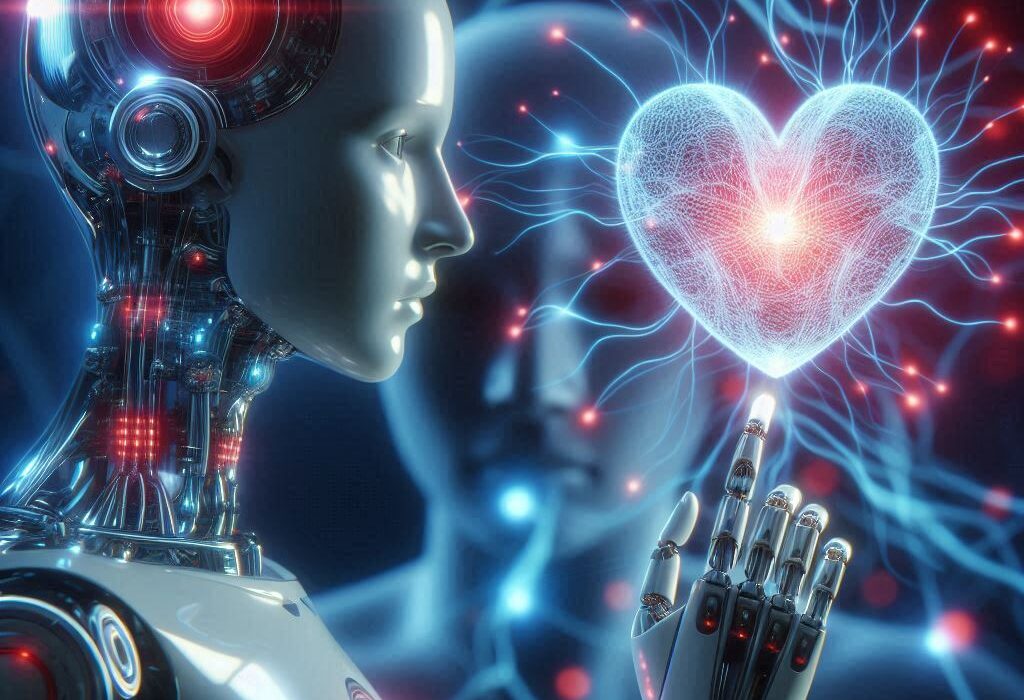It’s been years—maybe even decades.
You’ve forgotten birthdays. You’ve forgotten where you left your keys this morning. You’ve forgotten names, faces, facts, and appointments. But somehow, that moment—that humiliating, cringe-worthy moment—still lives inside you with cinematic clarity.
The time your voice cracked in the middle of a speech. The awkward thing you said in a meeting. The joke that fell flat at the party. The pants that ripped. The wrong text sent to the wrong person. The teenage blunder that felt like the end of the world.
You think of it in the shower. In traffic. At 2 a.m., when sleep teases your eyelids. You wince, shake your head, whisper, “Why did I do that?” and try to move on.
But it’s still there.
Why do we remember embarrassment with such relentless precision—while everything else seems to fade?
It turns out, the answer lies not just in memory science, but in evolution, emotion, identity, and the raw, messy tenderness of what it means to be human.
Embarrassment: A Deeply Human Emotion
Embarrassment is more than just discomfort. It’s not the same as shame or guilt, though it wears a similar face.
Shame says, “I am bad.”
Guilt says, “I did something bad.”
Embarrassment says, “I did something that made me look bad.”
It’s an emotion born from social awareness. You don’t feel embarrassed in a vacuum. You feel embarrassed in front of others. Or, more precisely, in front of what you imagine others think of you.
That’s what makes embarrassment so potent: it’s tied to our deepest need to belong.
Evolutionarily, survival wasn’t a solo sport. Humans survived in tribes. Being cast out—rejected, mocked, shunned—was a death sentence. So our brains developed hyper-sensitive alarms to warn us when we might be jeopardizing our place in the group.
That feeling you get when your cheeks burn, your stomach drops, and your thoughts scream, “Make it stop”—that’s your ancient biology screaming: “You’re in danger! Fix it! Apologize! Disappear! Do anything—just make them accept you again.”
And once your brain links that moment to potential social death, it stores it like a trauma—deep, sharp, unforgettable.
Your Brain on Embarrassment: The Neuroscience of Cringe
When you experience an embarrassing moment, multiple regions of your brain light up like a pinball machine.
First comes the amygdala, your fear and threat detection center. It registers the social risk and throws your body into fight-or-flight. Your heart races. Your face flushes. You feel exposed. Vulnerable.
Then the hippocampus, which handles memory consolidation, encodes the event in vivid detail—because your brain believes this moment is important to remember. You might need to avoid doing this again to stay safe in the future.
Finally, the prefrontal cortex gets involved. This is the part of the brain responsible for higher reasoning and self-evaluation. It tries to make sense of what happened. It analyzes. It replays. It imagines how others perceived you.
This trio—threat, memory, self-analysis—creates a perfect storm for what psychologists call “flashbulb memories.” These are memories burned into our minds with unusual clarity, often because they’re emotionally intense.
We remember embarrassment not because we want to—but because we’re wired to.
The Spotlight Effect: Everyone’s Looking at Me (But They’re Not)
One of the most insidious reasons embarrassing memories haunt us is due to a psychological glitch called the spotlight effect.
It’s the belief that people are noticing and judging us far more than they actually are.
In one famous study, students were asked to wear a hideous Barry Manilow T-shirt and enter a room full of peers. The T-shirt-wearers assumed that everyone would remember and mock them. In reality, only a tiny fraction of people even noticed.
Our minds are like overactive directors of a stage play where we are the main character—assuming every misstep, every awkward stumble, every wrong word is being analyzed by an attentive audience.
But here’s the truth: most people are too busy directing their own internal dramas to worry about yours.
Still, the spotlight effect tricks us into believing our small embarrassments are public spectacles. And because of that, we encode them as more dangerous and more unforgettable than they really are.
When Cringe Becomes Identity
Over time, repeated embarrassing memories can shape the way we see ourselves.
You may stop being someone who had an awkward moment—and become someone who is awkward. You may not just remember a time you said something foolish—but start believing you are foolish.
This is the psychological tragedy of internalized embarrassment: we take isolated moments and turn them into character traits.
And worse, we assume others have done the same.
You remember the one time you tripped in the hallway. You assume everyone still calls you “the clumsy one.” But they don’t. They’ve long forgotten. You haven’t.
You remember the job interview where you stumbled. You assume the employer laughs about it. They don’t. They’ve moved on. You haven’t.
The human brain has a tendency called negativity bias—the tendency to focus more on negative events than positive ones. Evolutionarily, it makes sense. But emotionally, it’s a recipe for self-loathing.
Embarrassing moments stick not because they define us, but because we think they do.
The Culture of Perfection: Why Modern Embarrassment Hurts More
In the age of social media, the fear of embarrassment has reached new heights.
We live in a world where everyone seems polished, filtered, and perfect. Every post, every photo, every caption is curated to show confidence and success. So when you make a human mistake—something real, something raw—it feels like a betrayal of the image everyone else seems to maintain so easily.
But here’s the trick: everyone is curating.
Behind the screens, everyone is awkward. Everyone is insecure. Everyone has memories that make them cringe so hard they want to crawl out of their skin.
You’re not the exception. You’re the rule.
And yet, because we rarely see other people’s embarrassing moments, we assume our own are unforgivable.
This is why empathy matters. The more we talk about the things that make us feel ridiculous, the more we normalize them. And the more we normalize embarrassment, the less power it has to define us.
Embarrassment as a Teacher: The Wisdom in the Cringe
Despite the shame, embarrassment isn’t just a curse. It can be a powerful teacher.
Embarrassing moments expose our edges. They show us what we care about. They reveal the gap between who we are and who we want to be.
They’re often signs that we were trying something. Taking a risk. Showing up. Speaking out. And yes, maybe we fumbled. But we were alive. We were in motion.
Brené Brown, a researcher of vulnerability and shame, writes:
“You can choose courage or you can choose comfort. You cannot have both.”
Embarrassment means you chose courage—even if it didn’t go perfectly.
And that’s worth remembering, too.
How to Heal from Embarrassing Memories
If your embarrassing moments still haunt you, you’re not alone. But there are ways to soften their sting.
1. Tell Someone
Shame thrives in secrecy. The moment you say it out loud—to a friend, a therapist, a journal—the spell begins to break. Most people will respond with their own story. Laughter will find its way in. And suddenly, the memory will lose some of its power.
2. Reframe the Story
Ask yourself: what would you say if someone else told you this happened to them? Would you call them pathetic—or brave? Would you laugh at them—or with them? Offer yourself the same kindness.
3. Look for the Lesson
What did that moment teach you? Maybe it revealed a boundary. Maybe it humbled your ego. Maybe it showed you what not to do. If there’s growth in the moment, it’s no longer a mistake. It’s a milestone.
4. Give It a Title
Sometimes, naming the memory can help separate it from your identity. Call it “The Time I Tripped in Front of the CEO” or “The Great Karaoke Disaster of 2012.” Turn it into a story, not a sentence.
5. Laugh
It might take time. But one day, what makes you cringe today will make you laugh tomorrow. That’s not denial. That’s resilience.
Why You Might Never Forget (And That’s Okay)
You might never forget your most embarrassing moments. And maybe that’s not the goal.
Maybe the goal is to forgive them.
To see them not as scars, but as stories. Not as flaws, but as features of a life fully lived.
Think of the people you love most—their quirks, their mishaps, their clumsy courage. That’s what makes them lovable.
Why would you be any different?
You are not your most awkward moment.
You are not your worst performance.
You are not your past mistake replayed in your mind’s cruel theater.
You are a whole, evolving, beautiful work-in-progress.
And the parts of you that you want to bury?
Those might just be the parts that make you most human.
The Unseen Kindness of Others’ Memories
And finally, remember this:
The moments you replay endlessly in your mind—the ones you’re sure everyone remembers with judgment?
Most people forgot.
And the ones who didn’t?
They probably remember them with warmth, not ridicule.
They remember you as human. As brave. As real.
And if they don’t—if someone does judge you forever for one imperfect moment?
That says more about their insecurity than your worth.
Let them go.
Hold yourself instead.






